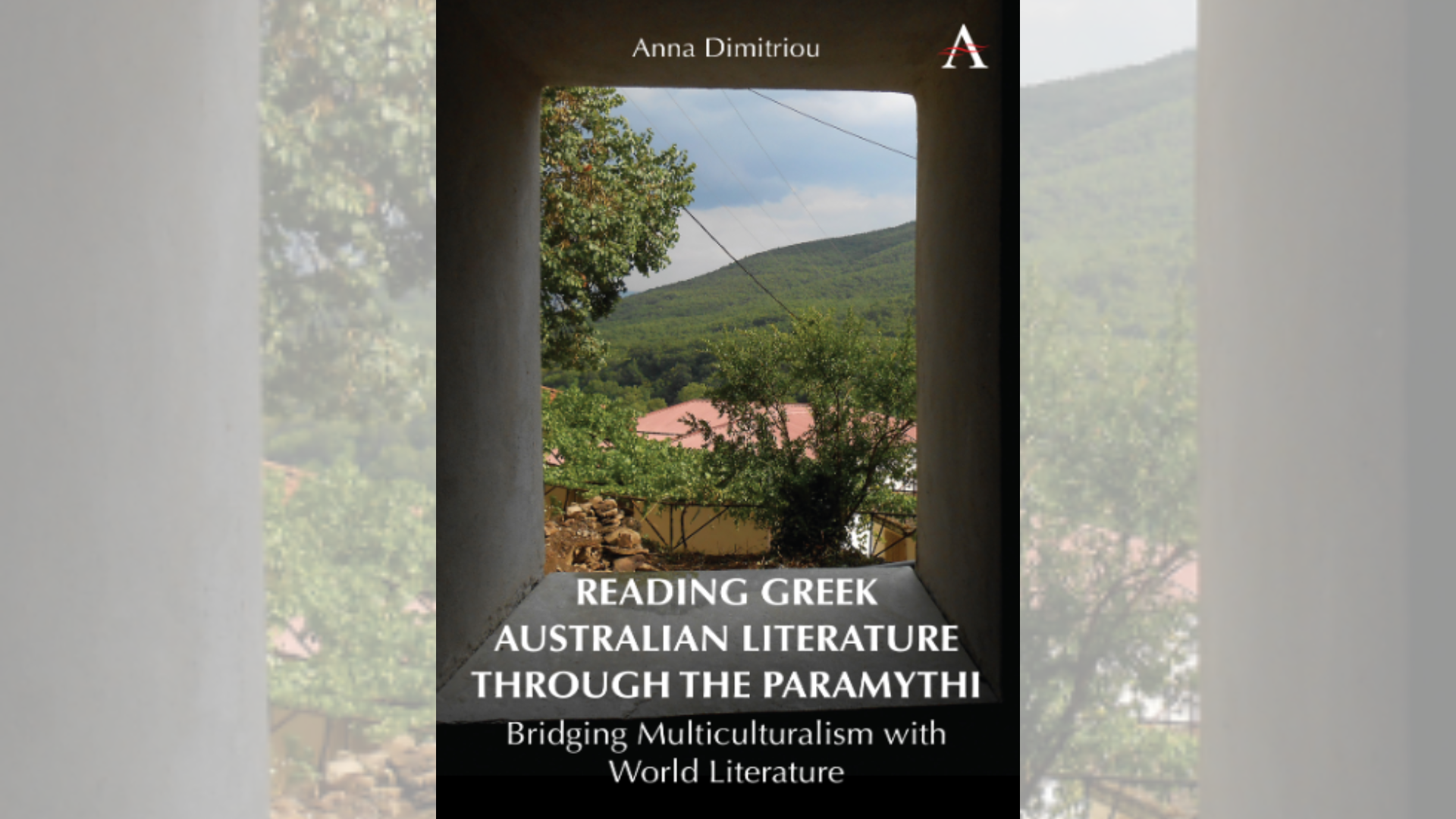Once upon a time, we were all children getting lost in the magic of fairy tales or “paramythia.”
Most of these magical and mythical tales were narrated through the voice of a grandparent or parent, passing on secret wisdoms and dreamlike lessons, all in the pursuit of comforting the listener.
In a dedication to her father – her very own storyteller – author Anna Dimitriou unearths the power of the “paramythic voice” in her most recent title – ‘Reading Greek Australian Literature through the Paramythi – bridging multiculturalism with world literature.’
Immediately, readers are drawn in from the cover of the book, which suggests that the picturesque Greek landscape itself is being observed by Dimitriou through the window of another lens.
Thorough in her approach and observations, she prefaces her comparative textual analysis by diving deep into diasporic transformations and narrative evolutions.
Dimitriou vividly explores how the “paramythic voices” of the past have subconsciously influenced the works of Australian writers of Greek descent including: Antigone Kefala, Dimitris Tsaloumas, Stylianos Charkianakis, Christos Tsiolkas, Dean Kalymnios, Fotini Epanomitis and Helen Koukoutsis.
“Cultural otherness” and the migrant experience remain important themes throughout, where a dual focus helps to exemplify the role of multiculturalism in the authors’ attempts to transcend national scales with their literature, whether written in Greek, English, or a mix of both.
From Kefala’s memory-bound “culturally induced dyslexia” to Kalymnios’ paradoxical works that “read like a puzzle,” Dimitriou intricately examines how each author has drawn inspiration from the tropes of the oral paramythi in both traditional and non-traditional forms.
Each chapter’s title either foreshadows an author’s battle with cultural identity and religion, or a seemingly “untranslatable” inevitably ambivalent development – ‘Dimitris Tsaloumas – Visionary Poet or Disillusioned exile?’
Tsiolkas’ gothic novel ‘Dead Europe,’ and Epanomitis’ ‘The Mule’s Foal,’ Dimitriou notes, embody a similar “paramythic presence” between their use of “exotic” and “impure” elements of the paramythi, signifying the relevance of the “Greek version of ‘vernacular cosmopolitanism’.”
Interweaving actual poems and stories from the authors, not only assists in balancing the concise presentation of her academic research, it steadily satisfies the bibliophile in all of us. Compelling readers through constant reflections and explorative methods, Dimitriou doesn’t miss a detail as she meticulously delivers the underlying elements, “transmitted rhythms” and intended literary techniques deployed by all of the authors within their varying texts.
She sways between an investigative and philosophical tone, using her own library of thoughts in conjunction with scholarly references, enlightening readers to the “paramythic experience – when vivid stories enable dreams and wishes to become a ‘real’ possibility.”
“Silenced histories” that reside within the “neglected corpus” of Greek Australian literature are re-awakened and unmuted through Dimitriou’s avid interpretations of subversive styles including “irony,” “carnivalesque” and “transgression.”
Adding to the volume of her research, post-cultural writers like Sneja Gunew and Stuart Hall have also been incorporated alongside scholars of Greek and world literature as points of reference, helping to capture the synchronicity and accuracy of her findings.
It is Emily Apter’s “untranslatability” however, that is key to Dimitriou’s eloquent depiction of the authors’ relationship with Europe and their ability to reach global audiences despite their experiences of either “inclusion” or “exclusion.”
A special spotlight is placed on each authors’ multicultural journey, where for some, their background has imprisoned them in feelings of exile and isolation, and for others, serviced in freeing them from unbearable trauma. “The paramythi is an indicator of ‘foreignness’ and is also the common denominator among all seven writers,” Dimitriou discovers, which, coincidentally helps them find somewhere to belong.
Ultimately, readers are inspired to revisit the spiritual shelves of their own generational roots in order to ensure a patient, authentic revelation of self.
Despite the differences it might have to our current reality, the paramythi’s polyphonic purpose appears to be never-ending, like a bookmark placed in both the past and present, reminding us of how far we have come.
Perhaps, the paramythi itself is the hero of everyone’s story, giving us space to dream and create, to heal and to hope. Perhaps it isn’t myth at all when they say, irrespective of the trials and tribulations faced, “Kαι έζησαν αυτοί καλά και εμείς καλύτερα.”
